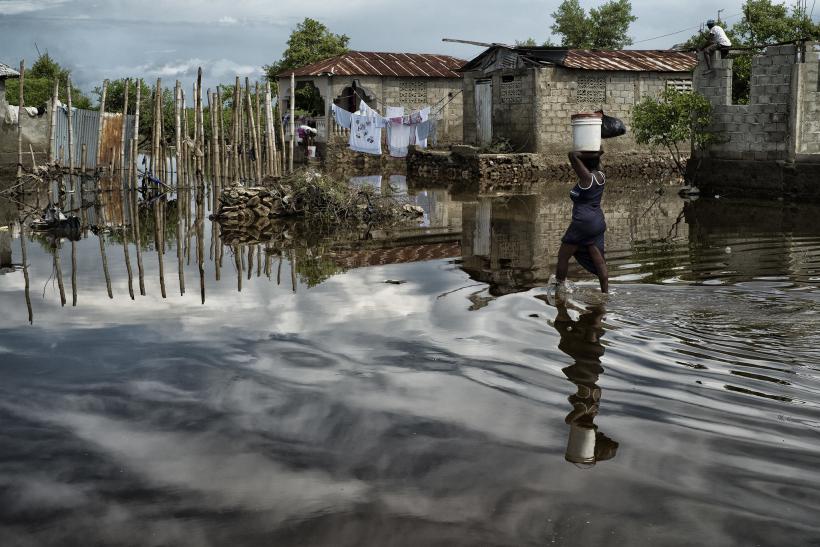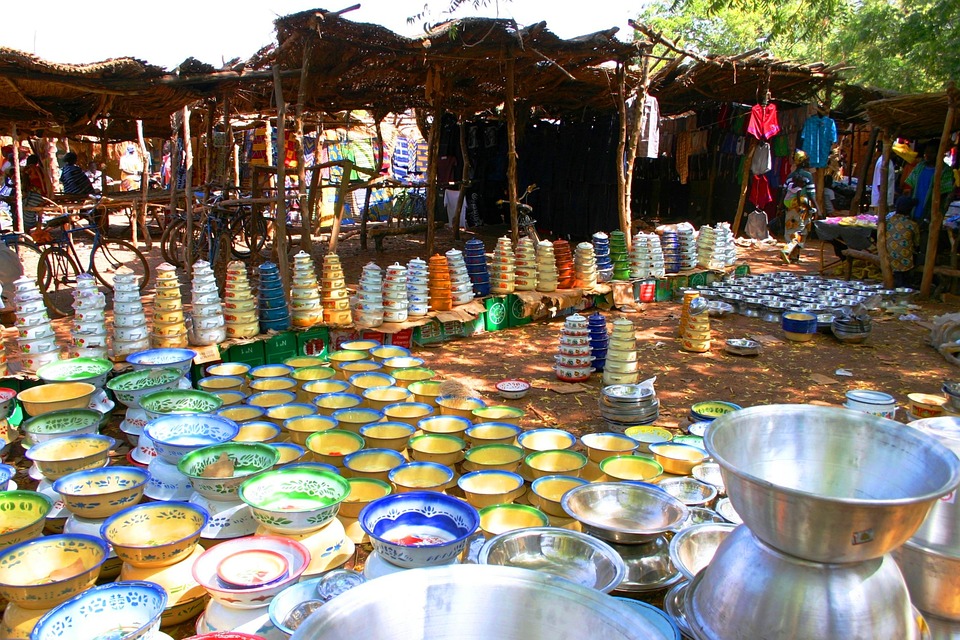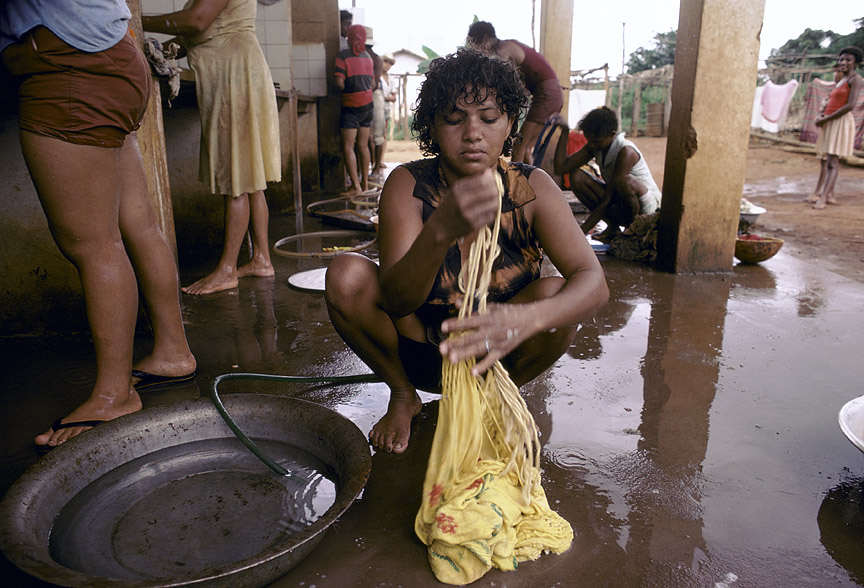Five Reasons the Global Risk Financing Facility Is Relevant During an Ongoing Pandemic

COVID-19 has halted the world as we know it. Unfortunately, natural disasters and climate shocks will not stop in its wake. When disasters do strike, they compound the already devastating impacts of COVID-19.
After only a few months, COVID-19 has already increased countries’ vulnerability to disasters and has reduced the countries’ capacity for dealing with shocks. It is placing a heavy burden on national health care and social protection systems; it imposes ever-increasing economic exposure in even the wealthiest nations. Developing countries have already depleted their contingencies and their limited emergency preparedness capacities; instated lockdowns are crippling their economies.
Many countries, businesses, and families are left with little or no buffer to protect against additional shocks. Even relatively small events that would be manageable in normal times are likely to have much larger and more devastating negative impacts as a result of the pandemic. Such a catastrophic event risks wiping out years or decades of development progress, thereby requiring an even longer recovery period.
'Natural disasters will not stop during COVID-19, and neither should financial planning for them.'
Although the World Bank’s core business has drastically shifted toward delivering a meaningful response to COVID-19, trust fund resources are playing their part to complement those investments and to support planning for the future. Next are five things to note about the relevance of the Global Risk Financing Facility (GRiF) during the ongoing pandemic.
ONE: GRiF, financed by Germany and the United Kingdom, and co-managed by the Disaster Risk Financing and Insurance Program and the Global Facility for Disaster Reduction and Recovery, was established to support financial planning for climate shocks, natural disasters, and—over time—a range of crises. GRiF’s mandate has become even more important during the COVID-19 pandemic. Although GRiF is not set up to provide direct pandemic support, it will provide funding to help countries prepare for the heightened risks that are likely to accompany disasters during the COVID-19 response and recovery period. GRiF support will take the form of two types of grants: small, short-term grants and larger, medium-term grants.
TWO: As an immediate measure, GRiF will provide up to 10 small grants of up to US$200,000 for short-term analytical work that incorporates financial preparedness to compound shocks into COVID-19 response and recovery projects that are currently being prepared.
THREE: In the medium term, GRiF will provide three to five grants of US$5 million to US$15 million each to co-finance operations that will design and establish financial solutions to compound shocks. The grants will fund the embedding of sustainable financing mechanisms to protect vulnerable businesses and families against compound shocks in lending operations that are currently being prepared. The objective is for the mechanisms to outlive the current pandemic so they can respond to future shocks and crises.
Several new ideas are already under discussion for both short- and medium-term support.

Photo Credit: Roberto Vi. A local market in Burkina Faso.
FOUR: Countries must protect small and medium enterprises (SMEs) from compound risks of drought during COVID-19. One short-term grant is financing an analytical framework, which is being piloted in several countries, including Burkina Faso and Vietnam, to assess the financial effects of COVID-19 and disaster shocks on SMEs in vulnerable countries.
In Burkina Faso, which experiences high levels of climate variability, unpredictable rainfall, and regular droughts that negatively impact the livelihoods of the most vulnerable, this analytical work is informing a larger investment. Together with the government, a World Bank team is exploring ways to protect SMEs from the compounding effects of drought during COVID-19 through a larger GRiF grant. To safeguard access to credit for SMEs, the government plans to expand its existing Partial Portfolio Credit Guarantee (PPCG) scheme to include an additional “crisis”-related window with a linked facility that encourages financial institutions to offer longer grace periods, as well as to maintain or even extend maturities during a crisis. This approach would guarantee restructured and short-term working capital for needed loans if borrowers run into difficulty resulting from either the COVID-19 pandemic or a drought.
The project team is exploring the use of GRiF support for providing additional capital to the guarantee facility for this crisis window. The team is also looking at ways to invest in related reforms that will increase the use of digital payment systems and will reduce cash-contact for financial services. The PPCG is locally owned and managed and will continue beyond the pandemic to respond to future crises.

Photo Credit: World Bank. Laundry washing at a water point in Brazil.
FIVE: Water utilities are already under stress from COVID-19, which necessitates financial planning for future shocks. Handwashing with water is a critical infection-control measure for COVID-19. This necessity has led to increased demand on water service providers around the world. At the same time, the water providers face unprecedented declining revenues as households struggle to pay bills. They also face rising operating costs related to overtime charges; enhanced water services in low-income, high-density communities; and increased costs for chemicals, adequate personal protective equipment, and so on.
Immediate financing will support the water global practice in carrying out financial assessments of utilities in Albania, Brazil, and Colombia. The resulting data will provide a better understanding of the financial effects of COVID-19, will help to estimate the funding gap, and will provide recommendations to feed into the design of longer-term reforms that ensure financial sustainability of water utilities.
The country-level assessments will also inform discussions around the potential establishment of a national or a regional liquidity facility that would provide timely support to water service providers and would ensure continued service delivery in the face of future shocks. GRiF could fund the technical work required to design and structure such a facility, provide start-up and operating costs, and finance the cost of financial instruments.
Now, in the wake of the COVID-19 pandemic, financial planning for compound risks is more important than ever. As the World Bank continues its pandemic response and recovery efforts, GRiF is ready to work with teams that are looking to plan today for additional risks that may materialize tomorrow. Such efforts will ensure that—even though health systems and economies are taxed—there will still be support for vulnerable countries, businesses, and families when future disasters strike.
Photo Credit: United Nations. A woman carries supplies through a flooded street in Cap Haïtien, Haiti
To view this blog in a MailChimp setting, click here.
Disaster Risk Finance | COVID-19 Blog Series
- Five Lessons on Disaster Risk Finance to Inform COVID-19 Crisis Response
- Five Reasons You Should Be Thinking About Compounding Risks Now
- Five Reasons the Global Risk Financing Facility Is Relevant During an Ongoing Pandemic
- Five Ways COVID-19 Leads to Natural Catastrophe Protection Gaps at the Sovereign Level
- Expect the Unexpected: Three Benefits of Rainy Day Funds
- Five Ways the World Bank’s IDA-19 Is Supporting the Poorest Countries in the Time of COVID
- Three Ways That Contingent Policy Financing Contributes to Resilience Building Before, During, and After COVID-19
- Five Reasons to Support SMEs So They Can Build Stronger Resilience to Future Disaster Shocks
- Three Reasons the Public and Private Sectors Are Stronger Together Against Disasters and Crises
- Five Ways Satellite Data Can Help Prepare for the Unexpected
- Four Ways Disaster Risk Finance Strengthens the Effectiveness of Adaptive Social Protection
- Three Ways to Enhance Online Knowledge Exchange During the COVID-19 Pandemic